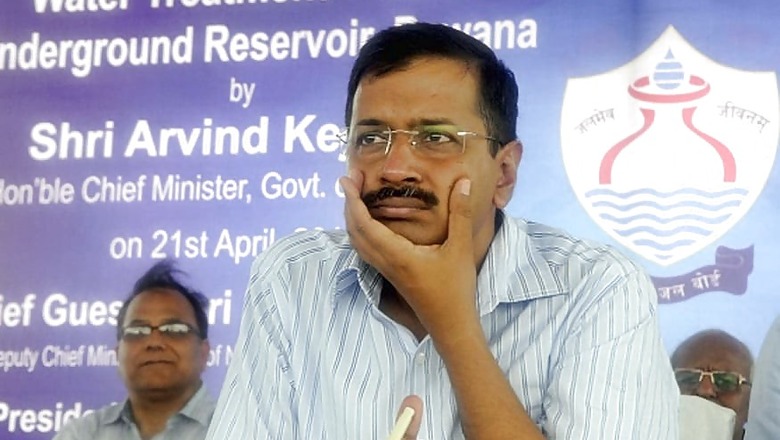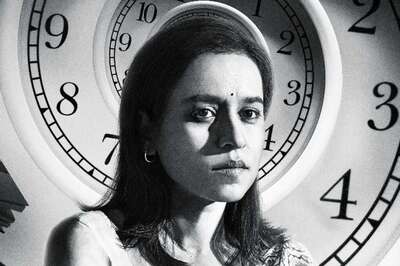
views
The ‘mango people’ are bitter, feeling let down by the King Alphonso himself: Arvind Kejriwal.
In the 24 hours after he nominated a billionaire 'dal badlu' to the Rajya Sabha, bypassing worthier candidates, the Aam Aadmi Party supremo has weathered a Twitter tornado of booing, as his patented ‘clean politics’ rhetoric rebounded to bite him sharply in the fundament.
The question du jour on social media was: has Muffler Man been co-opted by the system against which he fought?
Arguably, all parties routinely accommodate moneyed men, regardless of their political provenance.
They can do so boldly, because the ‘expectation gap’ between politicians’ sanctimonious bombast and venal conduct is small. Citizens are realists and don’t expect their public representatives to walk the talk.
With regard to AAP, which sprang from a citizens’ movement — India Against Corruption (IAC) — the expectation gap is huge, as Kejriwal & Co are held to higher standards of behaviour. For voters, AAP’s USP was volunteerism, crowdfunding and transparency, which set it apart from the political establishment.
Money and influence distort democracy by giving more weightage to the rich and powerful than the aam aadmi. Kejriwal, the great white hope of civil society and centrist politics, was supposed to remedy that. Politics-as-we-know-it, with all the deal-making, vested interests, exchange of favours and money mobilisation, was to give way to transparency and moral behaviour.
Did Kejriwal not commit to ‘vyavastha parivartan’, participatory governance, decentralisation of power and all good things Gandhian — as described in his 2012 manifesto, ‘Swaraj’? Did he not symbolise the ‘hope factor’ in politics?
Why then, did he unilaterally pick Sushil Gupta, who fought against AAP on a Congress ticket in 2013, over dedicated workers who have paid their dues and helped build the party? He also chose to go with ‘khaas aadmi’ and chartered accountant N D Gupta, rather than journalist Ashutosh or poet Kumar Vishwas, who would have proved far more effective in the Rajya Sabha.
In endorsing Gupta & Gupta, the Aam Aadmi Party has, in the eyes of many supporters, effectively reduced itself to an Aam Party.
Like other political parties born of popular causes — independence, social justice, etc — AAP owes its origins to a mass movement against corruption. Lawyer Prashant Bhushan provided the fodder for the campaign. Anna Hazare brought his moral authority to bear and Yogendra Yadav his intellectual input. Kejriwal, with his history of activism, was the public face.
After sweeping the Delhi assembly elections in 2015, he was expected to emerge as the first among equals. But political organizations are typically personality-driven and no party since Independence has been guilty of internal democracy. Kejriwal proved equally immune, evicting Bhushan and Yadav soon after assuming office. His authoritarian tendency established, he has now shown himself open to compromise.
AAP held the promise of infusing fresh blood into politics. Kejriwal himself is an ‘outsider’ in Lutyen’s Delhi. Bypassing the opportunity to showcase unimpeachable and talented individuals in the Rajya Sabha is another aspect of yesterday’s #Vishwasghat.
To make matters worse, AAP’s political management was poor. Word got out that eminent personalities, like former RBI governor Raghuram Rajan, IT magnate N R Narayana Murthy and lawyer Gopal Subramaniam had turned down AAP’s offer of a Rajya Sabha seat. This accentuated the impression that people who enjoyed public esteem were no longer keen on associating themselves with AAP.
Economist Mohan Guruswamy was so enchanted by AAP that in 2015, he marked his 70th birthday by donating Rs one lakh. A diminishing regard for the party was evident in the fact that in 2017, he donated just Rs 1,000!
Arvind Kejriwal seems to be running out of ideas. Perhaps because much of his tenure has been consumed in a bitter exchange with the BJP, which has spared no attempt to undermine him. The debacle in Gurdaspur, where the AAP lost its deposit despite being the principal opposition party in Punjab and having four sitting MPs from the state, is an indication that it is flagging outside of Delhi. A comedown for a party which had cast its eyes on Goa, Gujarat and Uttarakhand.
AAP has not lost its hold over Delhi, where the single-minded focus on health and education and the exemplary conduct of leaders like Manish Sisodia, is paying dividends. None of that masks the fact that AAP is no longer an inspirational force. It has lost the moral high ground and expended much of its goodwill among opinion-makers.
From a glass half-full perspective, the political ‘mainstreaming’ of AAP can do one of two things: catalyse a course correction or create space for something new. Hopefully, a vigorous grassroots movement that celebrates ‘Swaraj’, rather than Gupta & Gupta.
(The writer is a senior journalist. Views are personal)




















Comments
0 comment